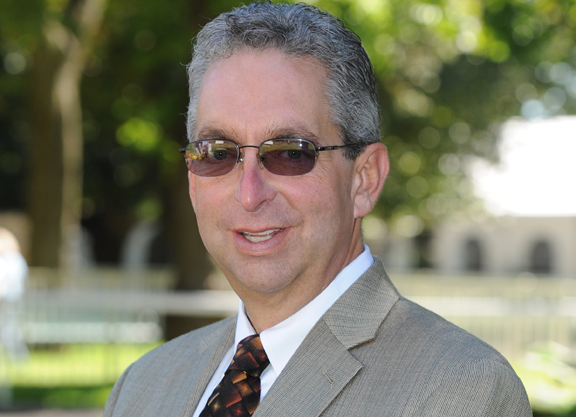By Gary Contessa
I have trained Thoroughbreds at a very high level for more than 30 years and I care deeply not only for the horses under my care but for the sport itself.
I have advocated for Thoroughbred racing in many ways and with all the discussion about federal legislation recently, particularly at that Congressional Horse Caucus hearing in Washington D.C. in late April, I would like to take this opportunity to share my thoughts on the subject
For starters, I find that our industry's lack of uniformity when it comes to medication and drugs is simply mind boggling.
It is unreal.
As a trainer, if I'm shipping a horse from my home base at Belmont Park in New York to race in the Ohio Derby, I have to reach out to a regulatory veterinarian in Ohio three or four weeks before my horse in going to compete to find out what treatments are allowed and which ones are not just to ensure that I will be competing on a level playing field.
Can you imagine such a scenario in this country's other major professional sports, like baseball, basketball or football? Can you imagine a baseball player using a treatment that was legal in Los Angeles but illegal in Baltimore?
Yet, in Thoroughbred racing, we have different rules in each of the 38 racing states. We have different drug-testing labs testing for different substances. In fact, we even have different penalties for violators.
It makes absolutely no sense.
I sincerely believe that the patchwork system of rules in this country and the uncertainty that it breeds are more responsible for positive drug tests than the malicious intent of owners, trainers, or veterinarians.
I also believe there is a big difference between an overage with a therapeutic medication and a positive drug test for an illegal, performance-enhancing drug, and that violations due to overages with therapeutic drugs are more common than ones involving illegal PEDs.
Overages with therapeutic medications happen. I know because I've had some.
But I've also seen malicious intent at work. I've seen cases where horses have tested positive for drugs that are not even legal in this country and can't even been bought in this country. They certainly have no place in the system of a horse. And yet the trainer gets suspended for a mere 10 days.
Penalties for such violations need to be severe. That's the only way to keep people in line. If we had an independent, impartial, third party handing out those penalties, it would be a tremendous step forward for this game.
Unfortunately, the general public, and maybe even our own fan base, makes no distinction between a therapeutic overage and a performance-enhancing drug. They see the headline about a drug positive and it hurts the image of our sport immensely.
I have read studies of our sport that consistently indicate that a large and growing segment of the general public have a negative impression of our sport. As a trainer, I just want a fair chance to compete on a level playing field, and I believe every trainer feels that way.
That is why even those with a philosophical opposition to medication are forced to use it if they want to win races. I know many owners and trainers who are vehemently opposed to the use of medication, but they treat all their horses with various medications because they realize they are at a distinct disadvantage if they don't.
There has been some movement toward uniformity in recent years, but horsemen and some of the industry's most influential organizations have different views on how to achieve that.
Many horsemen and regulators point to the National Uniform Medication Program as the best vehicle. This is a good start but it is voluntary and can take years for it to be uniformly adopted.
Then there are those who believe federal legislation is the best way to go, specifically supporting passage of the Barr-Tonko bill [formally known as the Thoroughbred Horseracing Integrity Act], which would authorize an independent, non-governmental organization to create uniform, high standards in drug and medication testing and enforcement for Thoroughbred horse racing.
I have no affiliation with groups that are supporting that legislation or those that are fighting against it. As I often repeat to friends and colleagues: I'm an independent voice and proud of it.
But I will say this.
When it comes to achieving true uniformity of medication and drug rules in our sport, we can't continue to have a patchwork system of regulation. It is time for a change and to me the Barr-Tonko bill is the best option for our sport.
Gary Contessa is one of the leading trainers on the New York Racing Association circuit. He holds the single-season record for most wins in New York with 159, and he was the leading trainer on the NYRA circuit in 2006, 2007 and 2008, when his horses earned $5.4 million, $7.9 million and $7.4 million, respectively.
Not a subscriber? Click here to sign up for the daily PDF or alerts.






